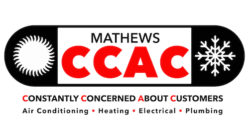
What’s Inside Grilling Fuels
All fuels leave behind byproducts as they burn and the smoke is inherently unhealthy. The fuels used for grilling are no exception. Even though natural gas and propane are considered clean, they still produce byproducts that harm health.
Gas and propane stoves emit carbon monoxide (CO), Nitrogen dioxide (N02), and formaldehyde whenever they’re on. Charcoal emits CO, and plenty of other noxious gases. The smoke that comes from food increases the PM 10 (particulate matter), a tiny particle that lodges deeply in lungs.
In the short term, these emissions irritate respiratory tissues and may aggravate asthma or intensify cardiovascular diseases.
Charcoal grills are no safer than gas grills, especially if they’re used indoors. Since combustion isn’t as complete as it is with gas, they emit more CO, which could become fatal in a short period, depending on the room size and amount of ventilation.
Some home appliance manufacturers make stand-alone grills for kitchens or include them as part of a range or stovetop. They are almost always paired with an exhaust fan to pull the toxic gases out.
Solving the Grilling Challenge
It is possible to grill without having serious effects on IAQ by:
Using the exhaust fan over the range or stove to remove exhaust gases.
Never bringing the grill into the house or garage when the weather is bad for cooking or home heating.
Keeping windows close to the barbecue closed when you’re using it.
Verifying that the smoke and carbon monoxide detectors indoors are working.
Grilling doesn’t have to have bad effects on IAQ as long as you follow the safety guidelines.
For more information about improving IAQ, contact CCAC, providing HVAC services for Coastal Bend homeowners.
Our goal is to help educate our customers in Corpus Christi, Texas about energy and home comfort issues (specific to HVAC systems). For more information about your HVAC system, download our free Home Comfort Guide or call us at 361-678-2495.












